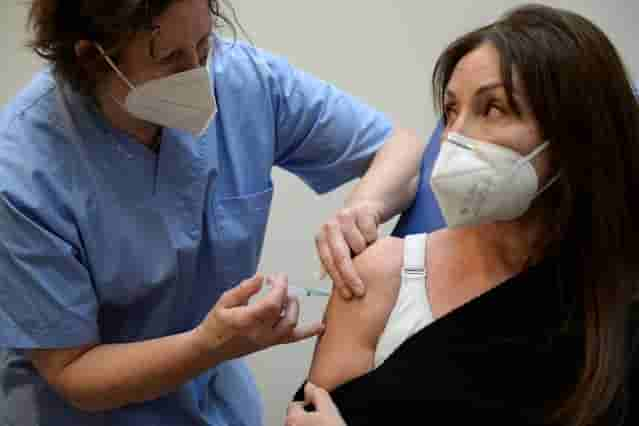The National Institutes of Health (NIH) has recently awarded $1.67 million to fund researchers at five different institutions who will look into the correlation between the coronavirus vaccines and menstruation, following reports that women are complaining about its effects on their menstrual cycle weeks after they got the shots.

According to reports from Seattle Times, the fund will come from the Institute of Child Health and Human Development and the NIH’s Office of Research on Women’s Health and will go to researchers from Boston University, Harvard Medical School, Johns Hopkins University, Michigan State University, and Oregon Health and Science University, as they look for potential links between coronavirus vaccines and menstruation.
The NIH-funded studies are expected to run a year-long study, with around 400,000 to 500,000 respondents. The respondents will be exclusive to unvaccinated participants, including adolescents and transgender and nonbinary people. The research will accept participants who are unvaccinated and will be a mix of those who intend to get vaccinated and those who don’t.
Three of the five NIH-funded studies will exclude participants who are on birth control or gender-affirming hormones to keep any potential impacts of those hormones on menstrual patterns and flow. On the other hand, those researchers from Johns Hopkins and Michigan State will allow these participants to join as they need to consider those possible impacts in their analyses, says Linda Huynh, a science writer for the National Institute of Child Health and Human Development.

According to Diana Bianchi, director of the agency’s Institute of Child Health and Human Development, the researchers will study possible changes to the women’s menstrual cycle before and after vaccination.
“Our goal is to provide menstruating people with information, mainly as to what to expect, because I think that was the biggest issue: Nobody expected it to affect the menstrual system because the information wasn’t being collected in the early vaccine studies,” Bianchi said.
Experts from the NIH have been saying that the menstrual changes that the women experience may have come from various factors from immune responses to the vaccines to their impacts on the uterus and the pandemic-related stress, lifestyle changes, and infection itself.
However, no studies have been published that can provide conclusive evidence or even linkages between the vaccines and menstruation. The clinical trials for the coronavirus vaccine also did not specifically ask participants regarding adverse side effects in their menstrual cycles or volumes, as Bianchi claims that “the (FDA) emergency use authorization was really focused on critical safety issues” and “changes to your menstrual cycle is really not a life and death issue.”
She also said that this issue “points out the fact that safety studies for vaccines … are not necessarily thinking about the reproductive health of women.”
Bianchi said that with the new NIH -funded research, the institutions can be more considerate about whether women’s reproductive health concerns should be added to clinical trial studies in the future.
Leslie Farland, an assistant professor in the department of epidemiology and biostatistics at the University of Arizona’s College of Public Health, on the other hand, said that this initiative from the NIH “signifies that they’re recognizing that there’s an important gap in our understanding of how vaccines influence menstrual health and ultimately reproductive health.”


